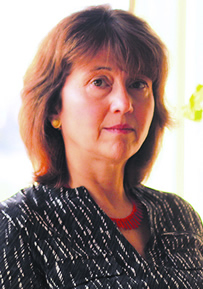Focus has increased in recent years on the development of biosimilars as alternative therapy options for rheumatoid conditions, among many others.
Though these agents offer a significant opportunity to reduce treatment costs while improving access to care, specific challenges related to their development and market penetration also exist. Some of these opportunities and challenges will be discussed during an ACR Committee on Rheumatologic Care (CORC) Forum from 7:30 – 8:30 am Wednesday in room 143A.

“Biosimilars represent a growing market that is still facing some major difficulties,” said Candida Fratazzi, MD, the president of BBCR Consulting in Cambridge, Massachusetts, who will speak during Emerging Biosimilars in Therapeutic Management: Where We Are and What Is in the Future.
Biosimilar regulation presents one of the greatest challenges in the field. Ensuring comparable safety and efficacy to the reference therapeutic is a challenge for regulatory bodies, and those agencies differ between the United States and the rest of the world.
“Currently, interchangeability is a unique prerogative of the U.S. Food and Drug Administration,” Dr. Fratazzi said. “Indeed, the European Medicines Agency cannot mandate interchangeability.” That, she said, is done on a country-by-country basis in Europe.
The quality of monoclonal antibodies, biotherapeutic proteins, and some other types of agents is highly dependent on both process- and product-related impurities, so establishing standards and stringent regulation remains a priority in the field.
Still, biosimilars have attracted interest from markets around the world.
“Some countries in the European Union such as the United Kingdom and the Netherlands have invested resources for the validation of biosimilars in the marketplace by promoting clinical studies designed to answer physicians’ and patients’ uneasiness” regarding the agents, Dr. Fratazzi said. “Immunogenicity is an element of uncertainty that can only be assessed in clinical trials.”
But she added that preclinical tests can provide reasonable confidence of the risk for any particular biosimilar under investigation.
Another barrier to the widespread adoption of biosimilars lies in that uneasiness that some may have regarding their use. Some surveys have found that patients are often unaware of the existence of biosimilars, and that only with growing awareness is their interchangeability better appreciated. For example, one EU survey found that only 31 percent of respondents would be “fully confident” about biosimilars, even when prescribed and explained by a treating physician.
Dr. Fratazzi noted that there are distinct advantages to biosimilars though, so overcoming such barriers will be important.
“Patients can gain major benefit from biosimilars adoption,” she said. “Biologics are often used for long-term treatment and their high cost could represent a major limitation.”
The session will also feature some discussion of recent commercial developments in the field, as well as marketing considerations, and the perspectives of both providers and payers on biosimilars.
